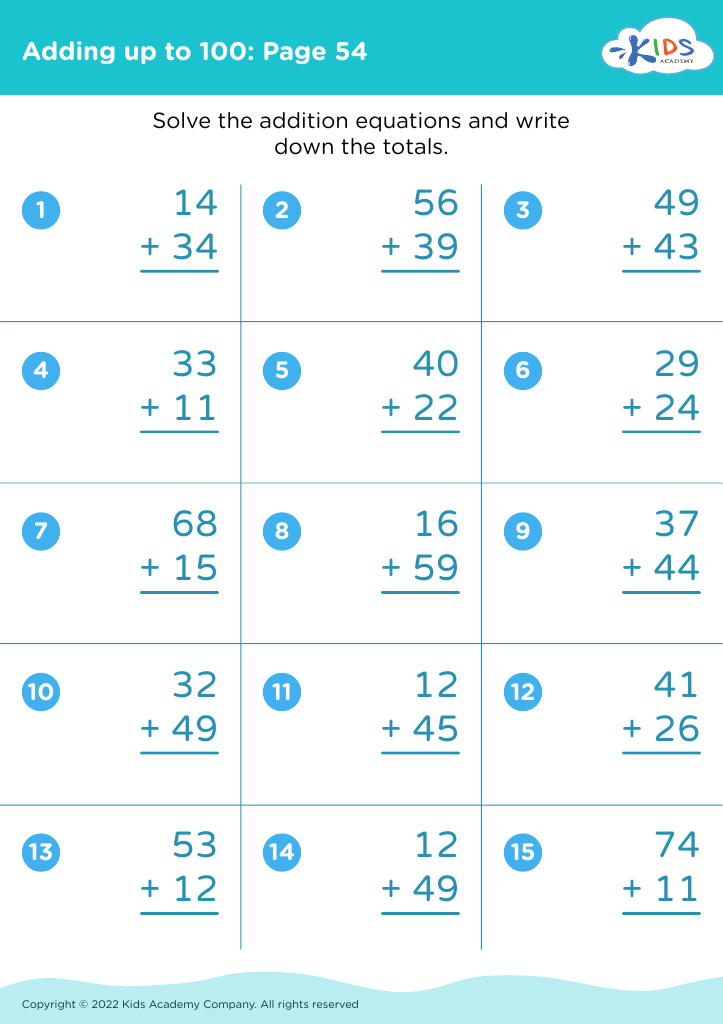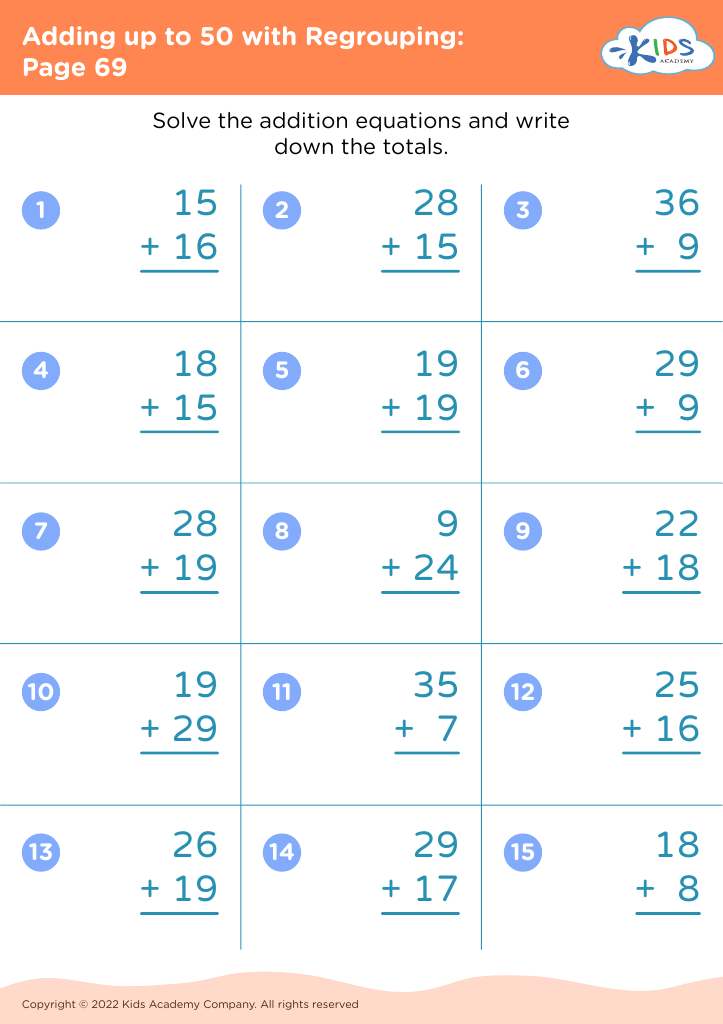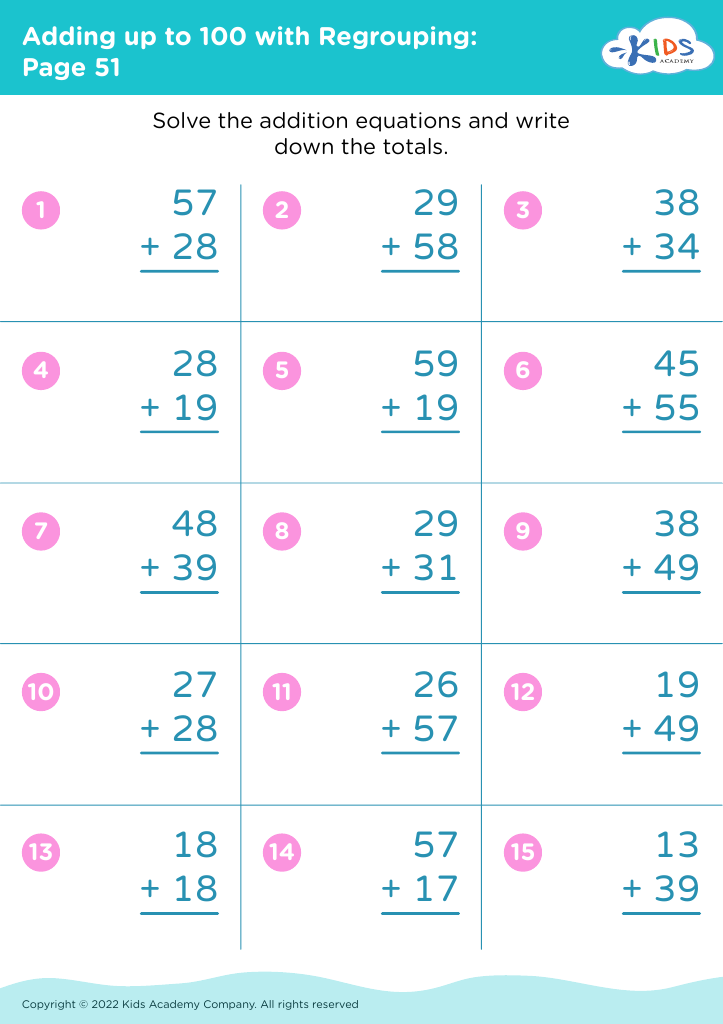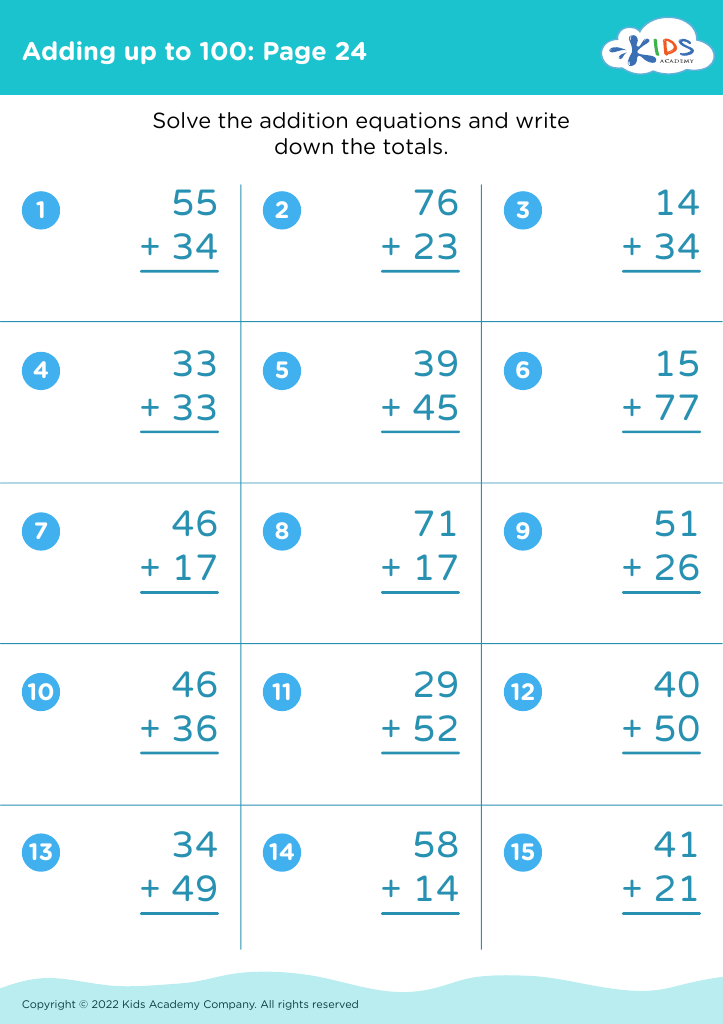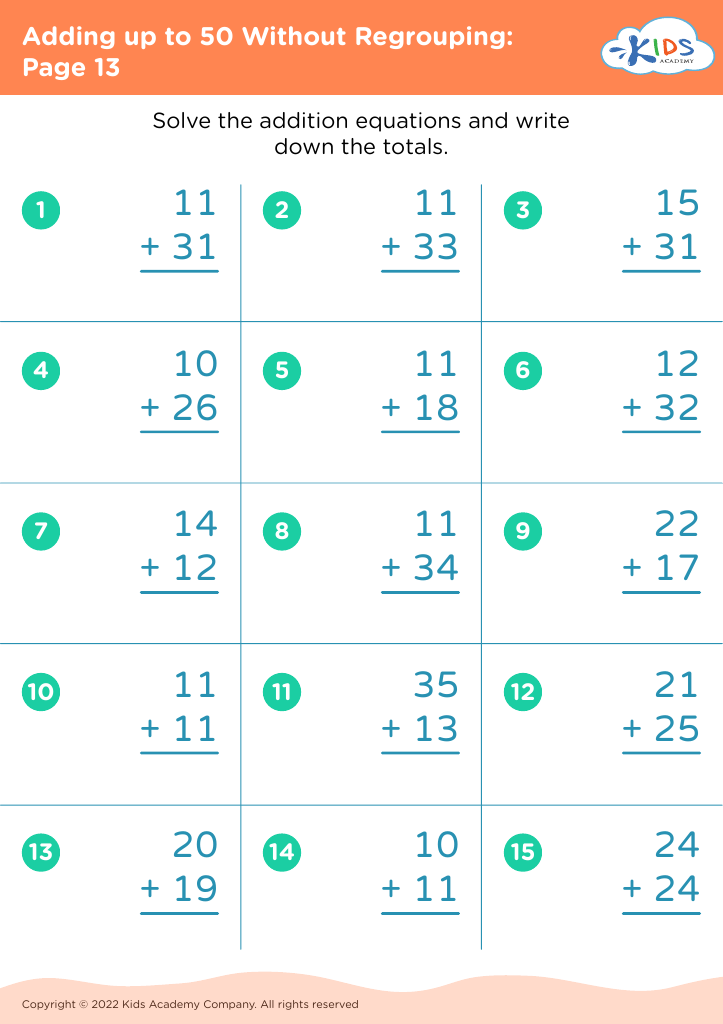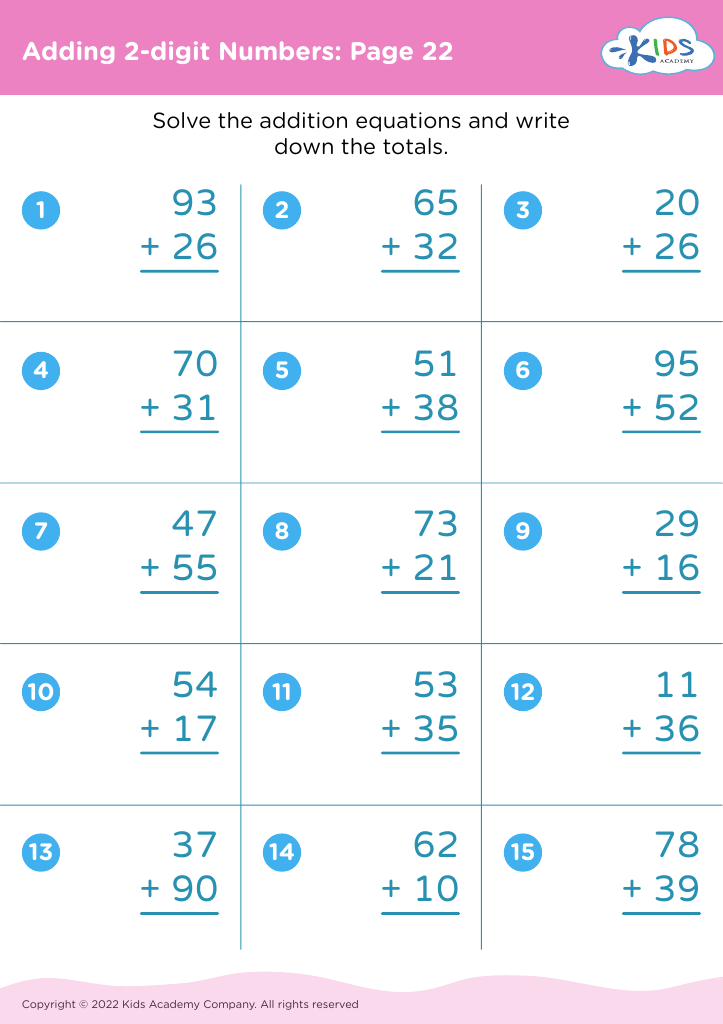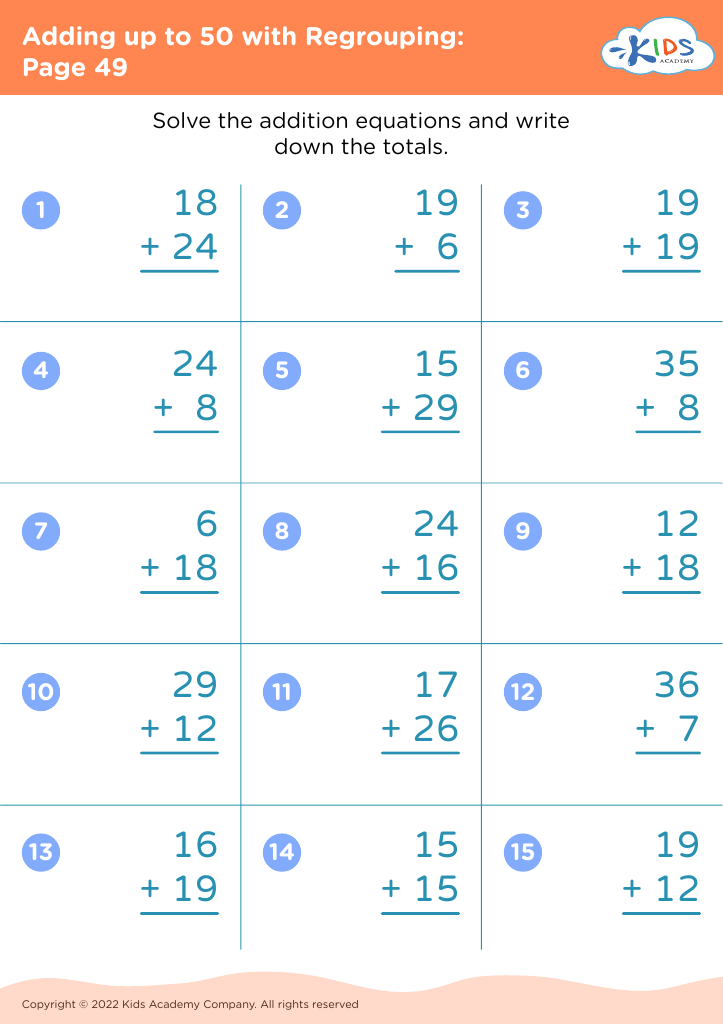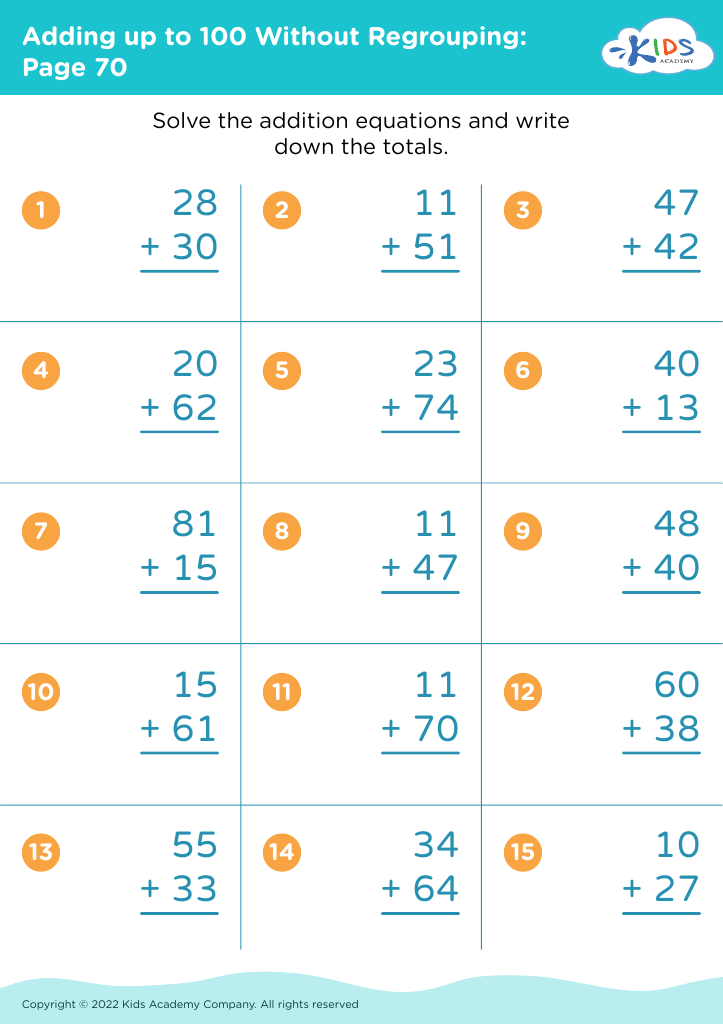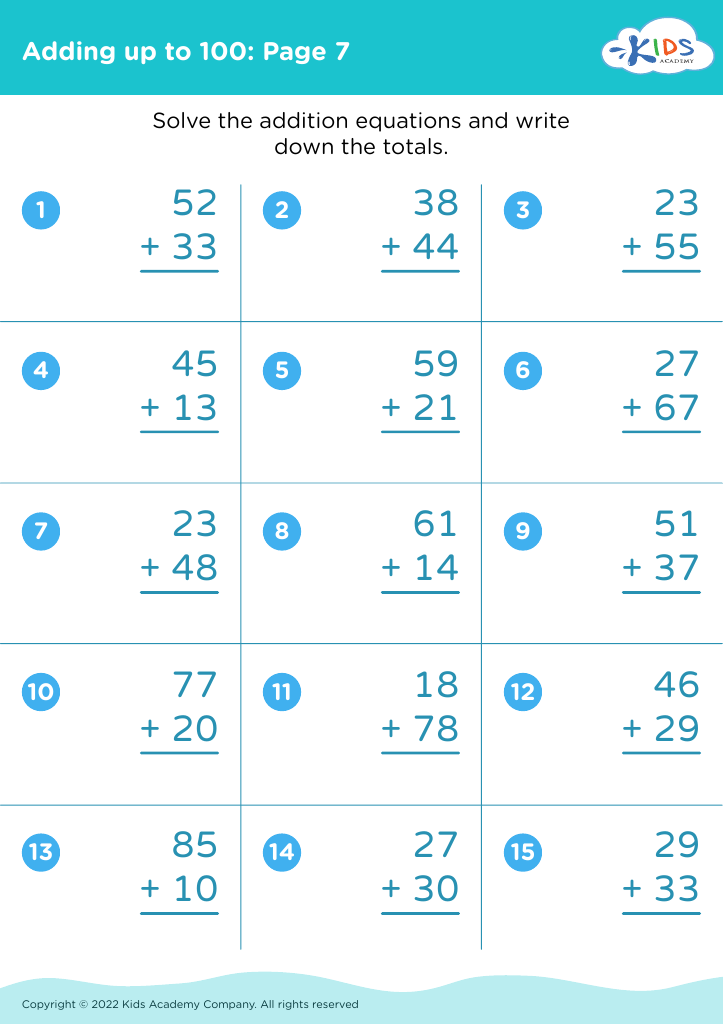Improve number recognition Addition & Subtraction Worksheets for Ages 3-9
15 filtered results
-
From - To
Enhance your child's math skills with our "Improve Number Recognition Addition & Subtraction Worksheets" designed for ages 3-9. Our expertly crafted activities combine fun and learning to help young learners identify numbers and perform basic math operations with ease. Each worksheet is colorful, engaging, and tailored to suit varied learning styles, making math enjoyable and accessible. With a focus on foundational arithmetic, these resources support cognitive development while fostering a love for numbers. Ideal for parents and teachers, our worksheets provide essential practice to boost confidence and proficiency in addition and subtraction. Explore them now to accelerate your child's math journey!
Parents and teachers play crucial roles in the early stages of a child's development, particularly in establishing foundational mathematical skills that set the stage for future academic success. For children aged 3-9, improving number recognition, addition, and subtraction is essential for several reasons.
First, these skills form the bedrock of more advanced mathematical concepts. Without a solid understanding of numbers and basic arithmetic, children may struggle with multidigit addition, subtraction, and other more complex operations later on. Early proficiency can create a smoother learning curve throughout their educational journey.
Second, developing these skills enhances cognitive abilities such as problem-solving, logical thinking, and reasoning. These skills are not only useful in math but in all areas of learning and everyday life. Understanding and manipulating numbers help children make sense of the world around them and apply logical thought processes effectively.
Third, early math skills are strongly linked to overall academic achievement. Research indicates that early math skills are a more accurate predictor of academic success than early reading skills.
Finally, gaining confidence in math during these formative years fosters a positive attitude towards the subject, countering the often-heard sentiment of “I’m just not good at math.” Enthusiastic and engaged learners are more likely to persevere through challenges and maintain a lifelong curiosity and passion for learning.

